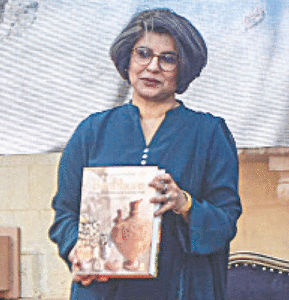KARACHI: Amid reports of talks with independent power producers (IPPs) to negotiate their contracts for providing much-needed respite to the people, Power Minister Awais Leghari diminished hopes for an immediate relief in electricity tariff on Wednesday when he said that the government’s measures would take “one-and-a-half year” to bear fruit.
He also linked the potential Rs10-12 relief in per unit cost of electricity with implementation of power reforms, re-profiling of China-Pakistan Economic Corridor (CPEC) loans and some other issues.
“We are taking all-out efforts to achieve the target of Rs10 to 12 per unit reduction in the electricity cost in the next one-and-a-half year, in case all reforms are implemented, including re-profiling of CPEC loans, review of contracts with Independent Power Producers, settlement of transmission constraints, improving efficiency of distribution companies and broadening the tax net,” he said, according to an APP report.
Minister Leghari said this while talking to the media after attending a programme — Power Reforms Roundtable — organised by the Institute of Business Administration (IBA) on its main campus.
Awais Leghari sees Rs10-12 per unit cut in electricity cost after 18 months
To a question, he praised the Punjab government for providing subsidy in the electricity bills for the months of August and September and said that its renewal or review would be the decision of the provincial government.
He said that the forensic audit of IPPs would be carried out if it was required. But he expressed the hope that it would not be needed.
The minister claimed that a Rs170 billion subsidy was being paid by the federal government to enable power consumers in Karachi get electricity at par with the prices in other parts of the country.
Replying to another question, he said that the K-Electric was being regulated by its regulator, the National Electric Power Regulatory Authority (Nepra), and added that that there was a need of further improvement in the efficiency of the power regulatory bodies, because the regulator had to watch the interests of the consumers and the government also needs to further strengthen their regulatory bodies.
Earlier, the minister delivered a keynote address, identifying the fault lines, and a clear roadmap for reforms that can improve efficiency of the power sector, catalysing industrial and economic growth in the process.
The keynote was followed by a discussion with the minister, and IBA’s Executive Director Dr S Akbar Zaidi as panellist and entrepreneur Junaid Iqbal as the moderator, said a press release issued by the IBA.
The minister emphasised that structural reforms are complex, with results expected in a few months. The power division is focused on enhancing governance in distribution companies and transforming transmission infrastructure to boost efficiency and reduce losses. Additionally, plans are underway to stimulate industrial demand and accelerate economic growth, he added.
Discussing the issue of tariffs, he highlighted that front-loaded debt repayments contributed significantly to capacity charges, and addressing the same through various policy levers can result in rationalised prices across the board.
“Moreover, it’s extremely important to actively move towards a competitive market regime, where electrons can be traded between buyers, and sellers, such that efficiency is rewarded, moving away from a cost-plus regime focused on a single-buyer model,” he added.
The minister also announced a forthcoming policy to promote electric vehicle (EV) adoption, especially for two-wheelers and three-wheelers, which will boost electricity demand, lower transport costs and reduce fuel imports.
He noted that Pakistan has one of the world’s cleanest energy mixes, with over 55 per cent of electricity from clean sources, projected to exceed 70pc in a few years.
Additionally, nearly 75pc of electricity comes from indigenous sources, expected to rise above 90pc soon, he said.
According to the APP report, the minister also said that seven out of 10 power distribution bodies would be privatised very soon.
He said that the government needs to review the IPPs contracts and that it would be done with mutual consent.
He told a questioner that the higher income group of the society was the beneficiary of the solar net metering.
Published in Dawn, September 26th, 2024














































Dear visitor, the comments section is undergoing an overhaul and will return soon.